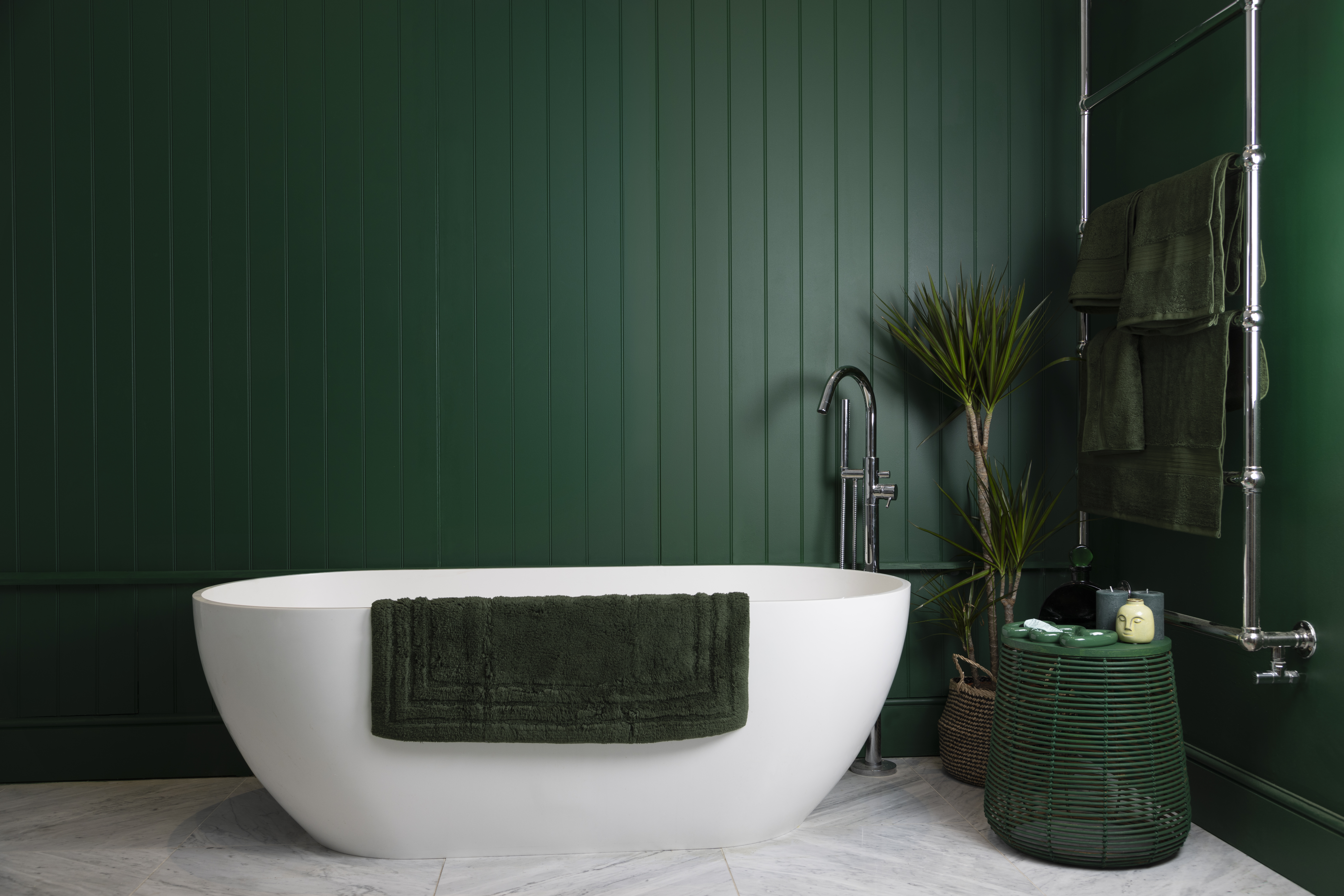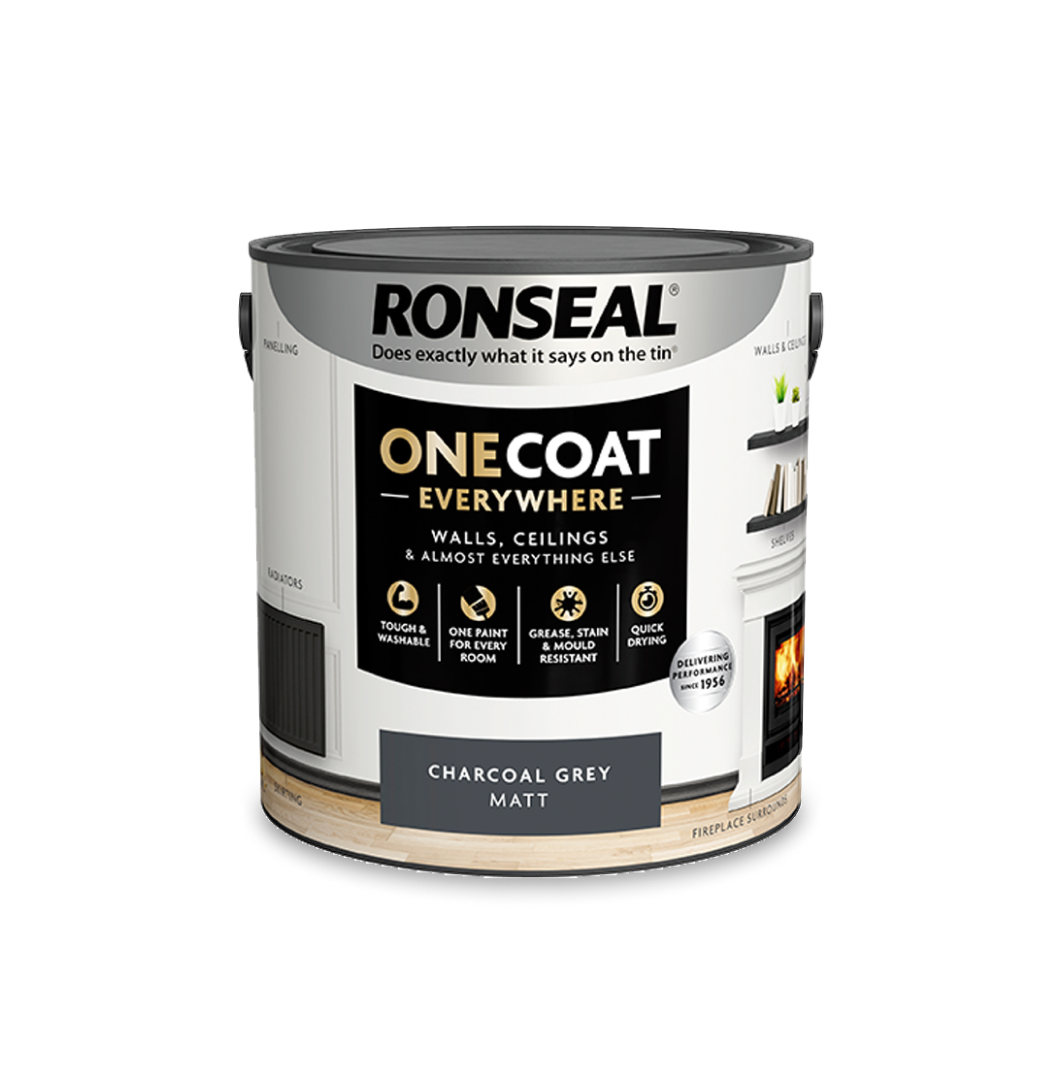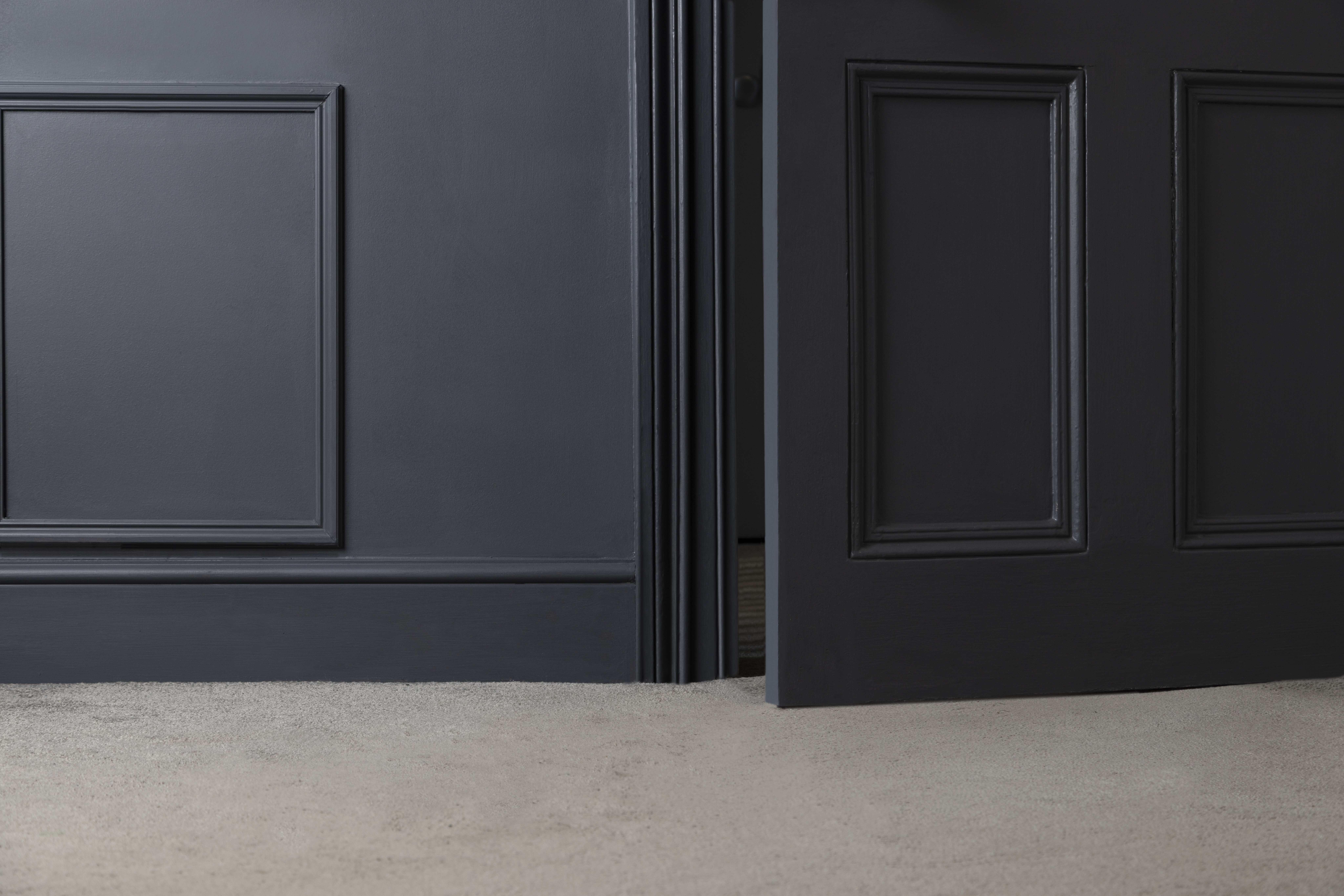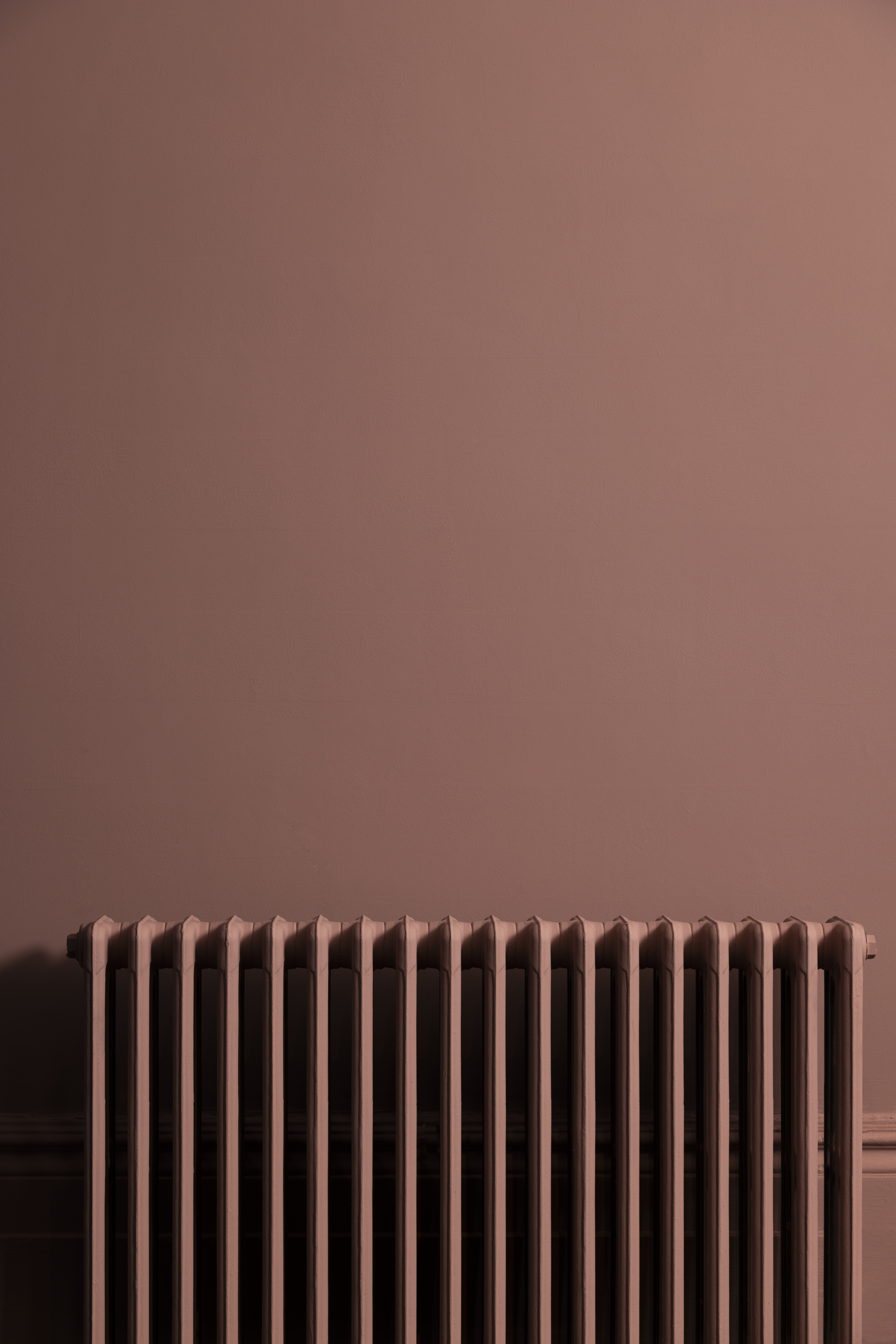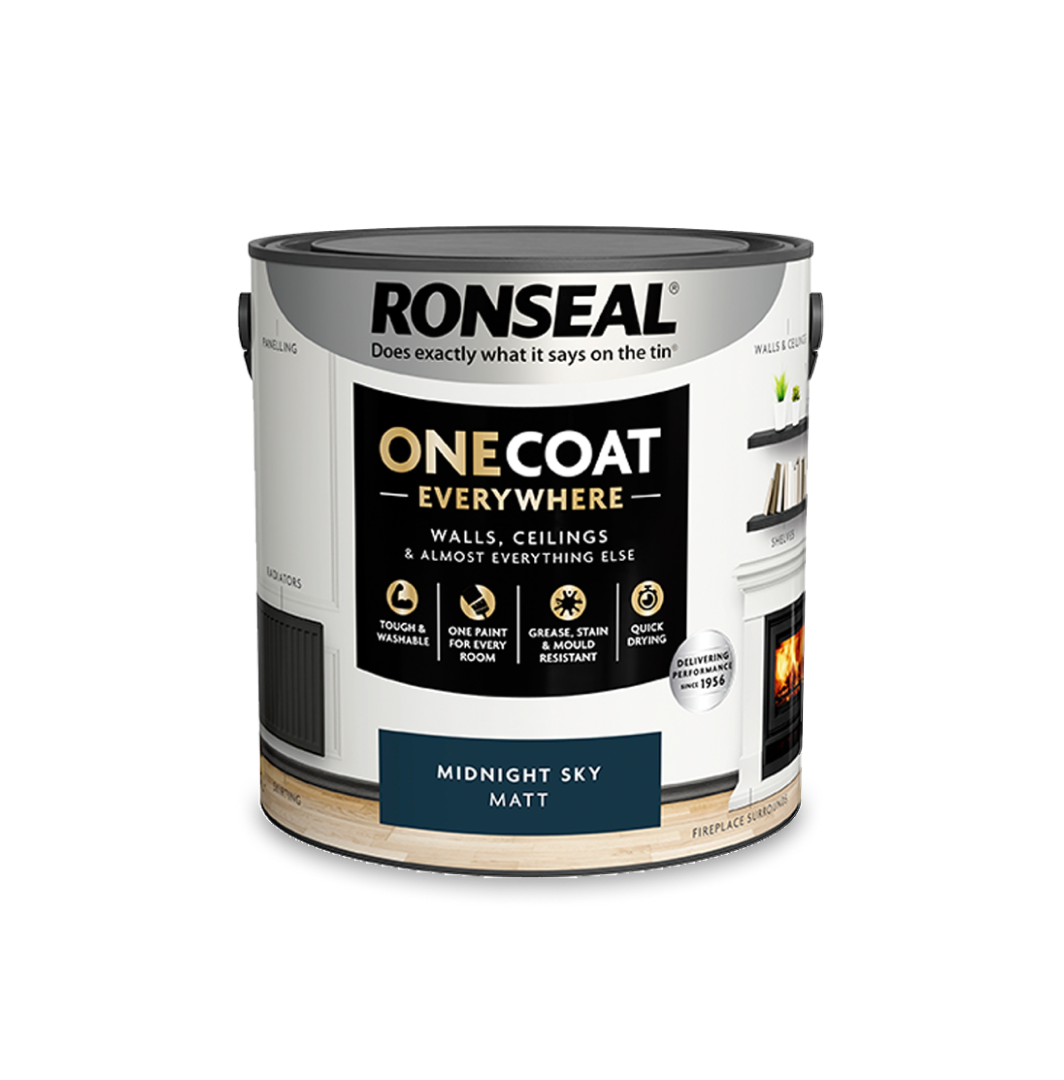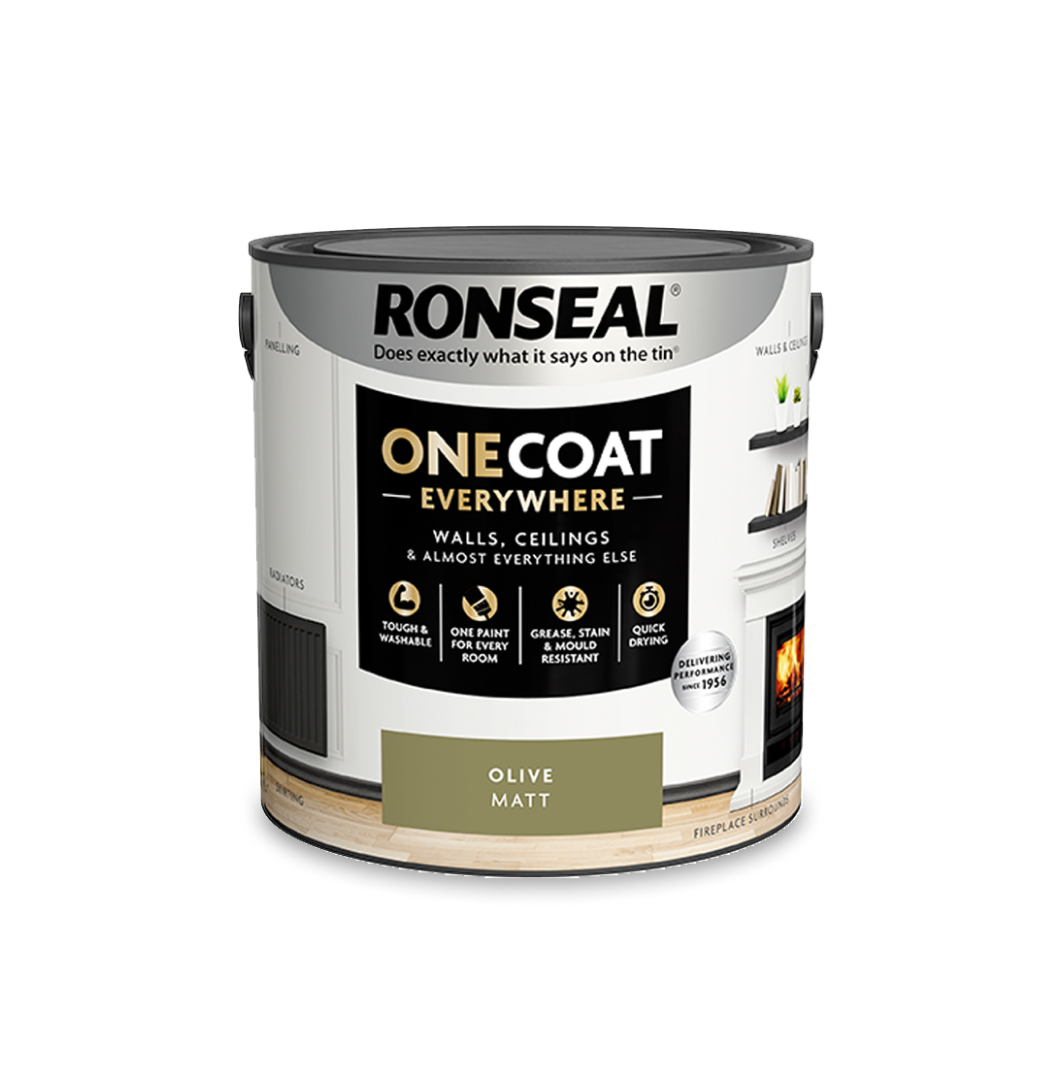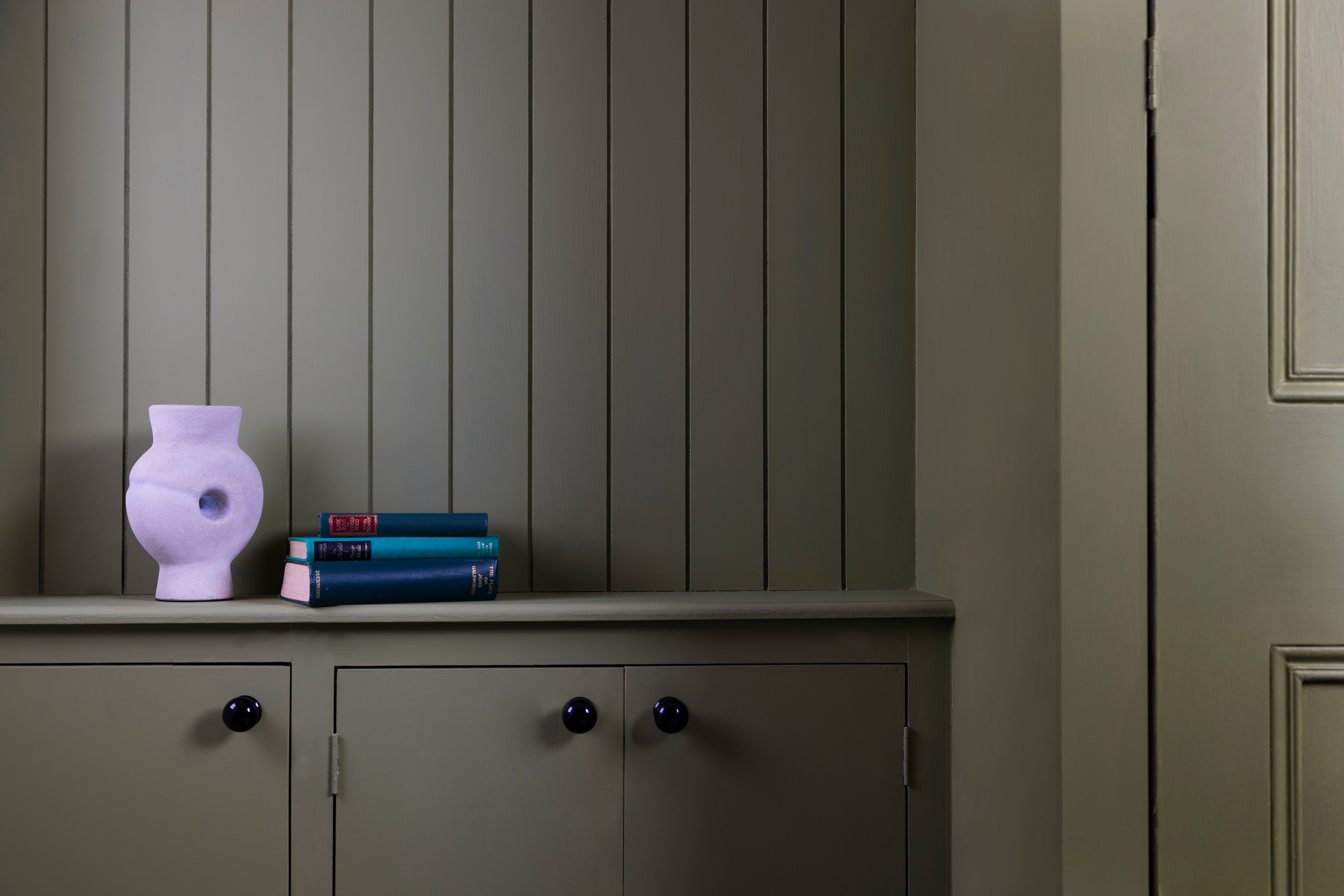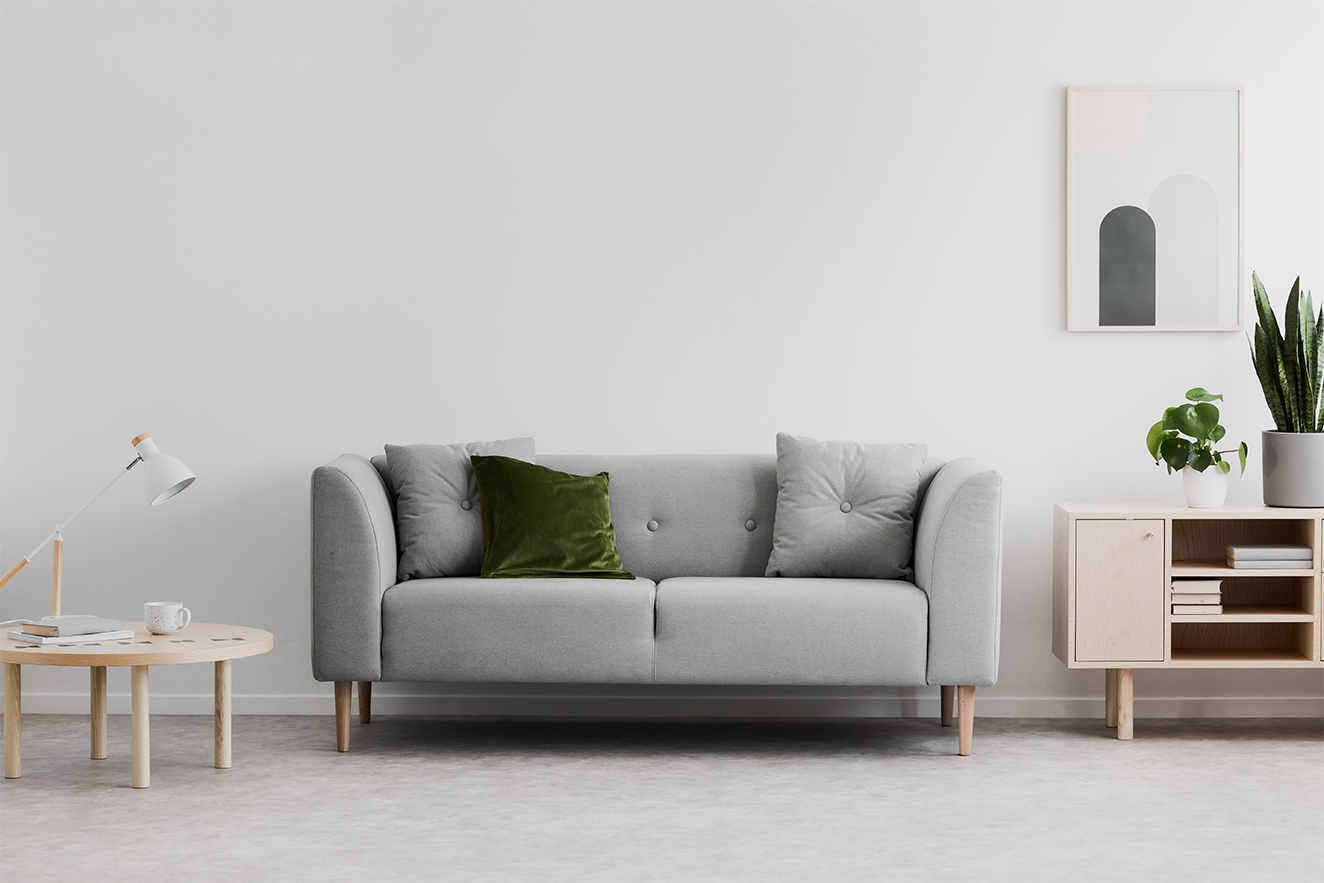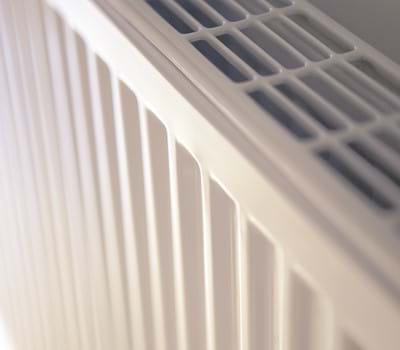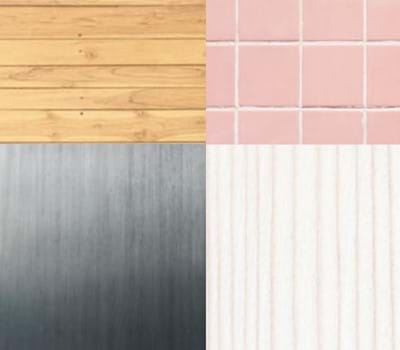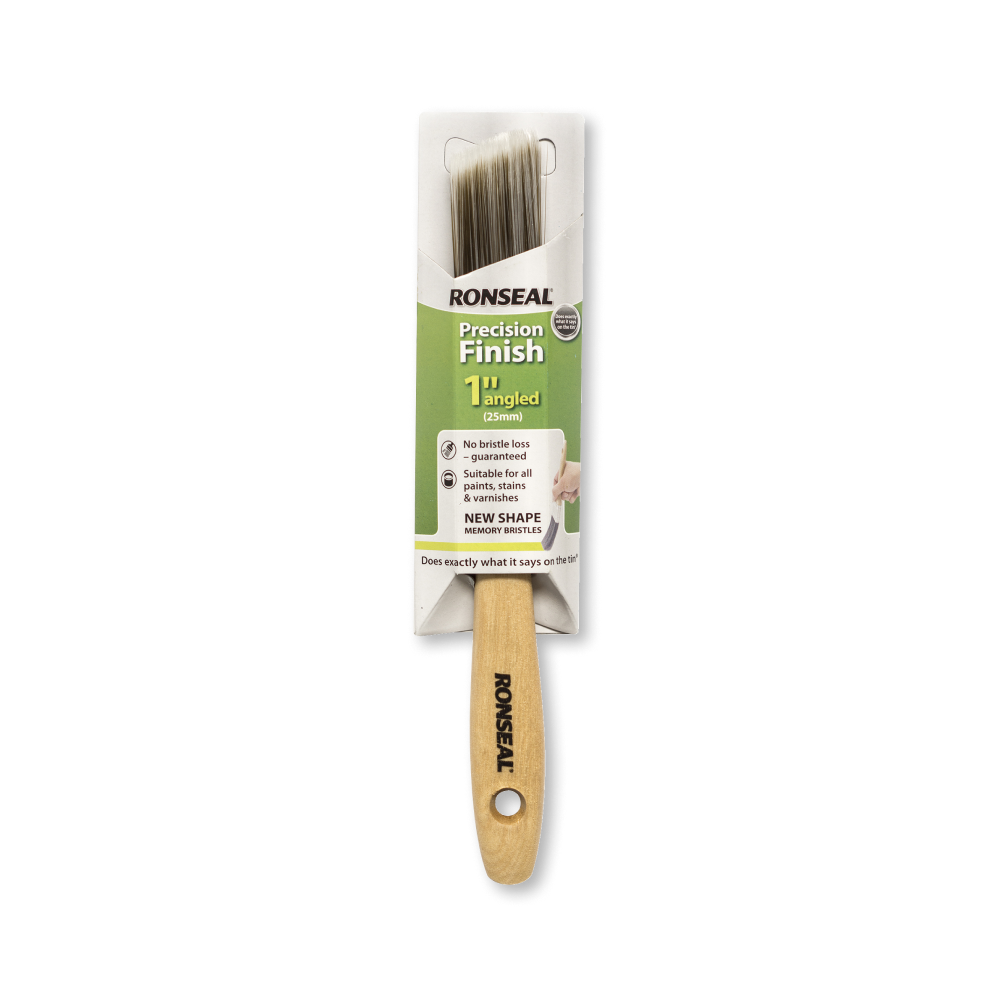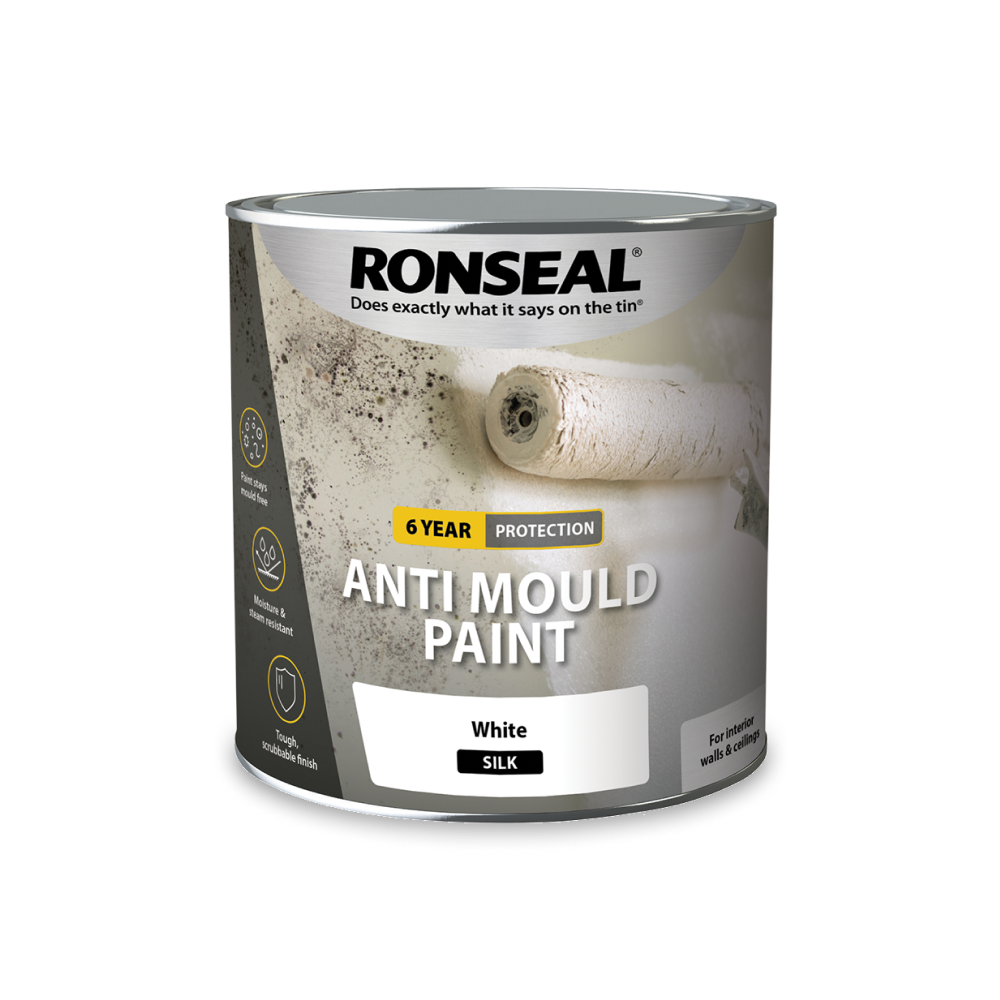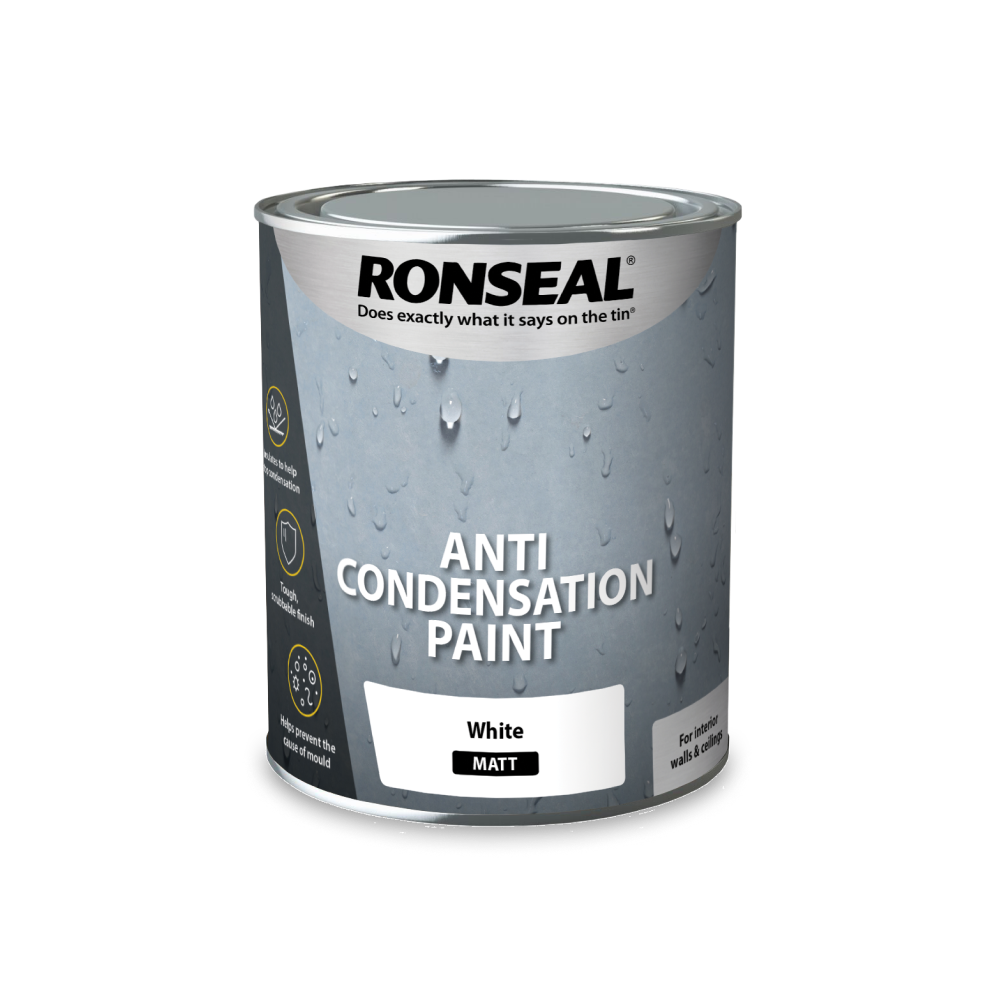One Coat Everywhere
Description
Make decorating your home a breeze with this washable, multi-surface paint that does exactly what it says on the tin.
One Coat Everywhere – Paint for Walls, Ceilings and Almost Anything Else
Forget buying separate pots of wall paint and ceiling paint for your next DIY project. Our multi-surface interior paint is a one-size-fits-all option that you can use to spruce up pretty much any surface or room in your home – no matter if that’s your living area, your kitchen or your bathroom.
One Paint for Every Room
Keeping your interior consistent couldn’t be simpler with this all-in-one paint. Use it to give your walls a new lease of life and choose from a selection of colours to suit every taste. Got some going spare once the job is done? One Coat Everywhere can also be used as a paint for tiles, doors, skirting boards and more.
Tough, Washable and Mould Resistant
Not just a versatile option for freshening up multiple rooms in your home, our One Coat Everywhere paint is also very durable. It’s a 100% washable paint and resistant to staining and most types of mould. You can be sure it can stand up to the challenges of everyday life.
Quick Drying for Fast Results
Forget spending days on end waiting for your paint to dry (and accidentally smudging it in the process). One Coat Everywhere is a quick-drying paint that will be safe to touch just one to two hours after application. Meaning? You can transform a whole room in your house literally overnight.
Why Choose One Coat Everywhere
For durable wall paint that’s fast drying, washable and versatile enough to use on most surfaces, make One Coat Everywhere your go-to. It really is an all-in-one paint option that you can use for your walls, ceiling and almost anywhere else. And it leaves a stylish matt finish that will look like it’s been done by professionals.
Product features
- Walls, ceilings & almost everything else
- One paint for every room
- Tough & washable
- Grease, stain & mould resistant
- Quick drying
How much paint do I need?
Measure your area precisely, drop the numbers into this smart calculator and it will tell you straight away how many litres you'll need to complete your project.
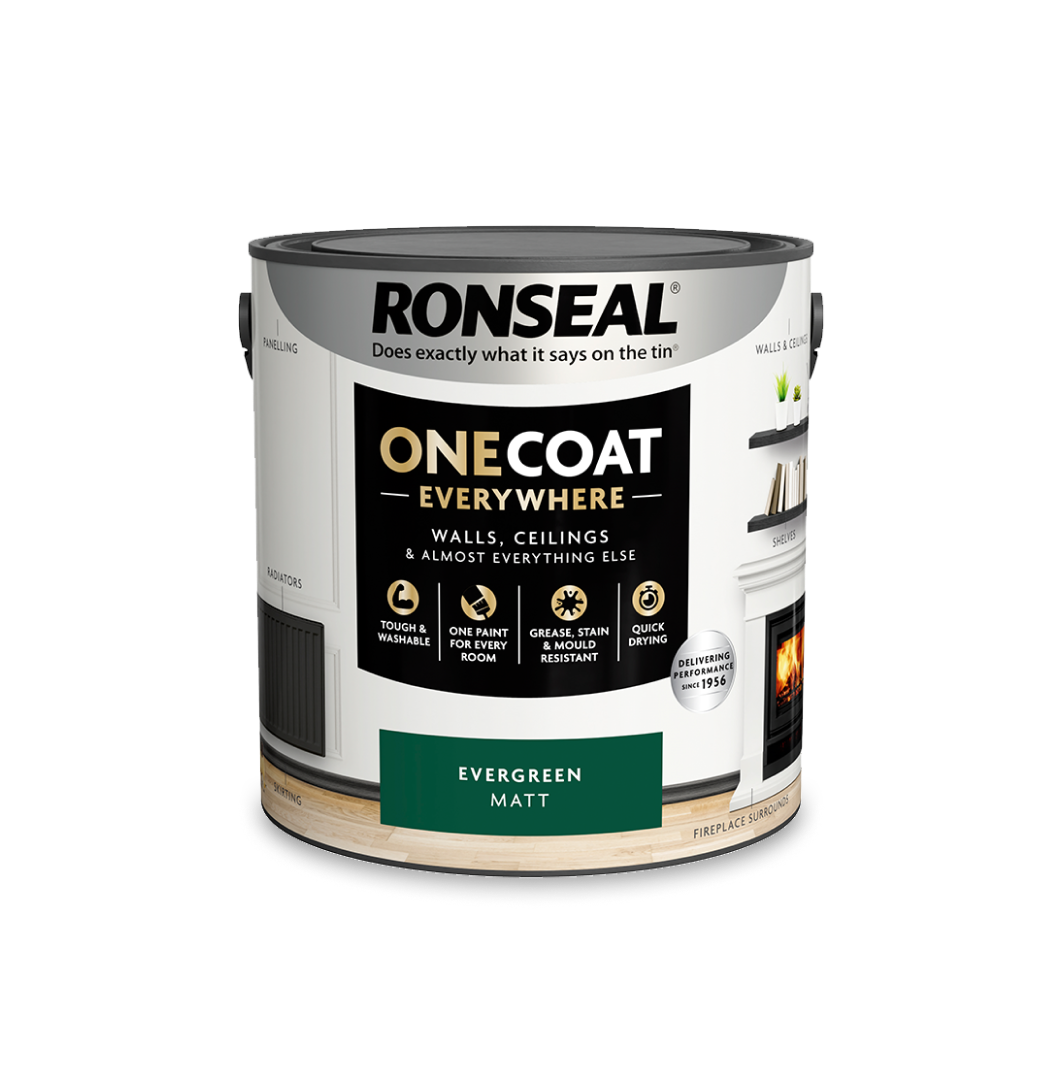
How do the colours look?
Use on...
Make sure the room is above 10°C. Open your doors and windows and cover any areas you don't want to get paint on.
Previously painted walls:
- Sand off any loose or flaking paint. Then give the walls a wipe with a damp cloth to get rid of any dust or dirt. If you're trying to cover a contrasting colour use a basecoat first. It'll mean using up less paint and getting the job done with less coats
Bare plaster:
- If you've had your walls and ceilings re-plastered, let it dry for 7 days before painting. You'll then need to seal the plaster.
Bare & previously painted wood:
- Give the wood a light sand with 120 grit sandpaper, then wipe away the dust with a damp cloth. Fill any holes and cracks and treat any knots. Our Knot Block Primer will do this for you
Bare and painted metal:
- Sand off any loose and flaking paint, then wipe away the dust with a damp cloth. If painting bare ferrous metals such as cast iron or steel, you will need to use a specialist primer first.
- Give your paint a really good stir. If you've got more than one tin of the same colour, mix them together. This will ensure the colour is consistent.
- Get lots of paint on your roller or brush. Always work from dry to wet areas. Don't spread the paint too thin. Extra coats may be needed when trying to cover bold or contrasting colours.
- It'll be touch dry in 1 hour. If a second coat is needed wait 2-4 hours. Do not thin this paint.
Remove as much paint as possible from brushes and rollers before washing with warm, soapy water. Wipe up spills immediately with a damp cloth. Allow at least 1 week for the paint to harden before washing it down.
Dispose of unused paint responsibly. Check with your local authority to see if they provide facilities for the disposal of paint. Don’t empty leftover paint into drains or watercourses. Pour it into a box with shredded paper or cat litter, allow it to solidify away from children or pets, then dispose with household rubbish. Protect from frost.
